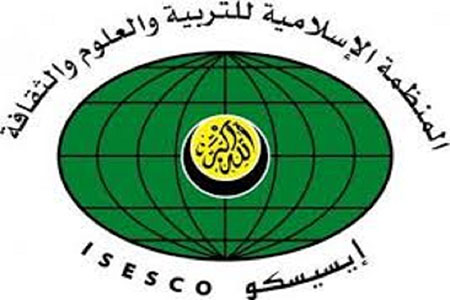
In a statement released on the occasion, ISESCO invited member states to take the necessary measures to celebrate this great event and underscored importance of the civilization and cultural heritage, all its tangible and intangible manifestations; preserving the collective memory and safeguarding the identity of peoples and nations, Maghreb Arab Press (MAP) reported.
It also highlighted the urgent need for the protection, preservation and ensuring the sustainability of the heritage within a comprehensive and integrated vision and on the basis of a participatory and collective will.
In its statement, ISESCO recalled the long history of the Islamic world and the distinction of its diverse and rich civilization and cultural heritage that flows from its openness and mutual influence.
It referred to the creative contributions of intellectuals, scientists, writers, poets, artists, architects and craftsmen, stressing that the civilization and cultural heritage in the Islamic world, both tangible and intangible, is a key symbol of the Islamic civilization identity and an open space to showcase its cultural diversity and an inexhaustible source of inspiration for creativity and innovation.
Furthermore, ISESCO reaffirmed the need for supporting its Islamic World Heritage Committee, stepping up efforts to preserve this cultural heritage.
ISESCO called also for publicizing the Islamic World's historical landmarks, archeological sites, prominent architectural buildings, artistic masterpieces, manuscripts, minted coins, living human treasures, and civilization symbols and figures.
It also called for inscribing a greater number of its archeological sites and intangible aspects on the World Heritage List and on the Islamic World Heritage List, organizing heritage public open doors’ days; providing the necessary restoration, maintenance, protection and documentation for its sustainability under all circumstances and areas especially in areas of conflicts and wars or in areas targeted by extremism, sectarianism and terrorism.
ISESCO also urged Muslim countries to provide more training to professionals working in the fields of tangible and intangible cultural heritage; and hone their professional, technical and scientific skills, based on ICT and mechanisms of collective and participatory management.
In addition, ISESCO called upon member states to organize cultural weeks on the cultural heritage of Al-Quds on the occasion of celebrating Al-Quds Al-Sharif as the 2019 Capital of Islamic Culture for the Arab region and the permanent capital of Islamic culture; and activate the twinning of the 2019 capitals of Islamic culture with Al-Quds Al-Sharif.
Furthermore, the Organization denounced the vandalism and destruction of many historical buildings and landmarks in a number of member states, as a result of conflicts and wars fueled by extremist thought, sectarianism and terrorism; and the looting, smuggling, illicit trafficking of artifacts and heritage landmarks.

Add new comment